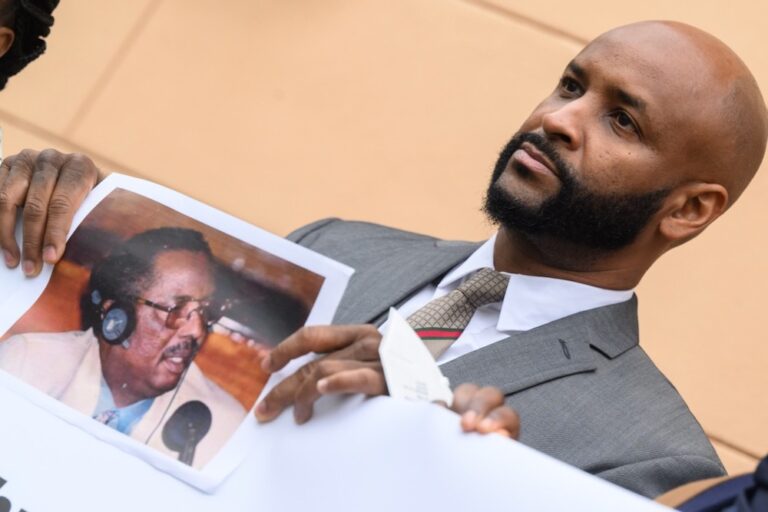(MFWA/IFEX) – On 23 September 2006, Gambian president Yahya Jammeh repeated one of his long standing anti-press statements, hinting that he would be more ruthless in dealing with journalists and the media in his third five-year term of office. According to a Media Foundation for West Africa (MFWA) – Gambia source, President Jammeh gave the […]
(MFWA/IFEX) – On 23 September 2006, Gambian president Yahya Jammeh repeated one of his long standing anti-press statements, hinting that he would be more ruthless in dealing with journalists and the media in his third five-year term of office.
According to a Media Foundation for West Africa (MFWA) – Gambia source, President Jammeh gave the hint in response to a question during his first news conference after being announced winner of the 22 September presidential election.
The source said President Jammeh swore to selected local and foreign journalists with the Holy Qu’ran saying: “Let me tell you one thing. The whole world can go to hell. If I want to ban any newspaper, I will, with good reason.”
President Jammeh, whose administration never ceased to harass and intimidate journalists, emphasized: “This is Africa and this is the Gambia, a country where we have very strong African moral values. . . If you write ‘Yahya is a thief’, you should be ready to prove it in a court of law. If that constitutes lack of press freedom, then I don’t care.”
The source said some Gambians have expressed worry over the inaction of the international community in their plight, which has allowed President Jammeh to openly declare “Let me tell you one thing. The whole world can go to hell. If I want to ban any newspaper, I will, with good reason”.
President Jammeh, who supervises one of the most repressive regimes in Africa, said: “I don’t believe in killing people. I believe in locking you up for the rest of your life. Then maybe at some point we say, ‘oh, he is too old to be fed by the state’, we release him and let him become destitute. Then everybody will learn a lesson from him.”
Under his administration, Deyda Hydara, managing editor of “The Point” newspaper and a critic of his regime, was brutally murdered in December 2004.
Officials regularly detain, threaten or otherwise harass journalists and media organizations. The office of the bi-weekly newspaper, “The Independent” has been closed for the past five months, following a police raid in March. All its staff members were arrested, including reporter Lamin Fatty, and illegally detained for 63 days. He is currently on trial for allegedly publishing “false information”. The wave of arrests is linked to an alleged coup attempt in March.
“The Independent”’s closure follows the disappearance of “Citizen Newspaper” from the newsstands when its publisher, Babucar Gaye, was arrested in 1998. Its sister radio station, Citizen FM, has been forcibly shut down since 2002 on authority of an archaic 1913 colonial law.
Former president of the Gambia Press Union, Demba Jawo, and the British Broadcasting Corporation (BBC) Banjul correspondent, Ebrima Sillah, received death threats from a pro-Jammeh group calling itself the “Green Boys”.
In the last four months, seven journalists have been either arbitrarily detained or have fled the country. Malick Mboob, and Chief Ebrima B. Manneh, former staff members of the “Daily Observer”, have been languishing in detention without charge at the National Intelligence Agency (NIA) since May. Both detainees have been held incommunicado since their arrest.
Sulayman Makalo, assistant editor of the banned “The Independent” newspaper, and Omar Bah, news editor of the “Daily Observer”, went into hiding in July shortly after receiving information that they were targets of arrest by the NIA.
Since the spate of arrests began in April-May, more than 60 people, including military, security personnel, lawyers, the speaker of the Gambia’s Parliament, and ordinary citizens, have been picked up and arbitrarily detained.


